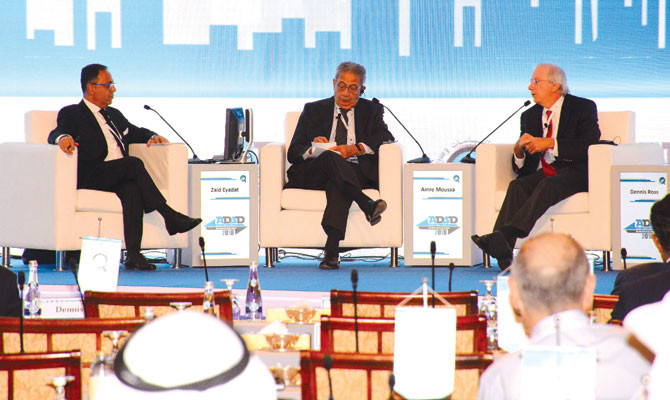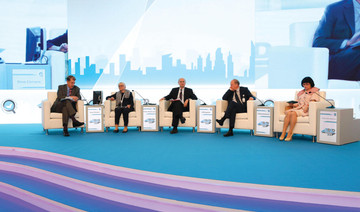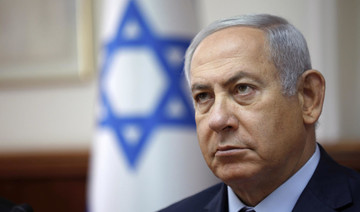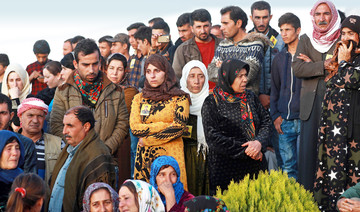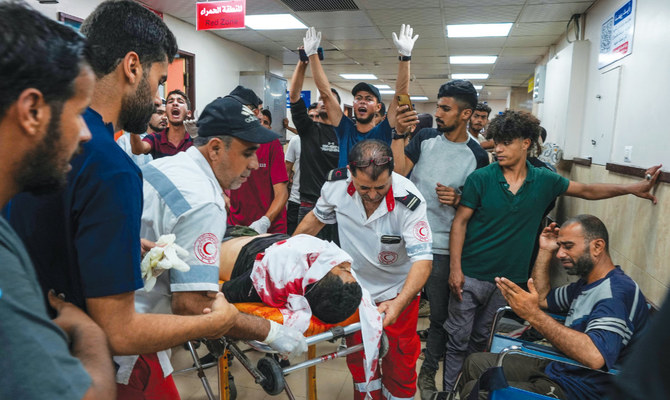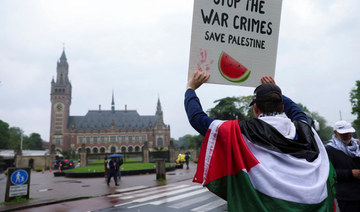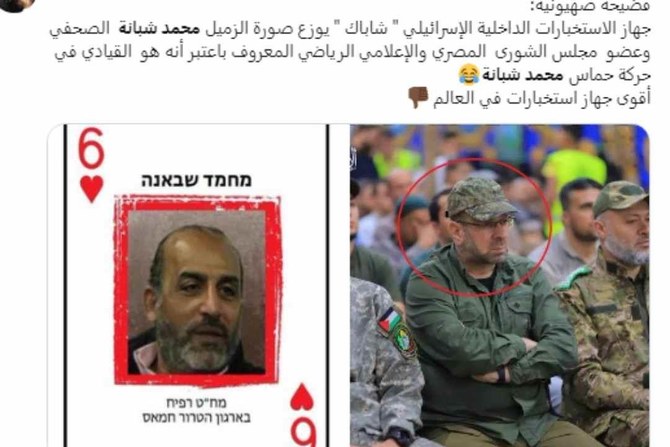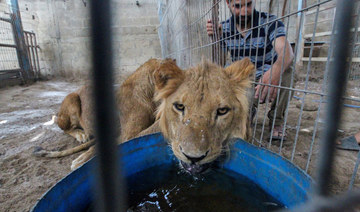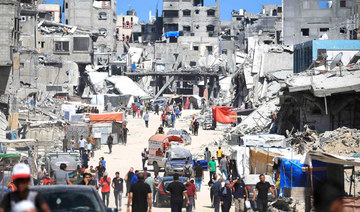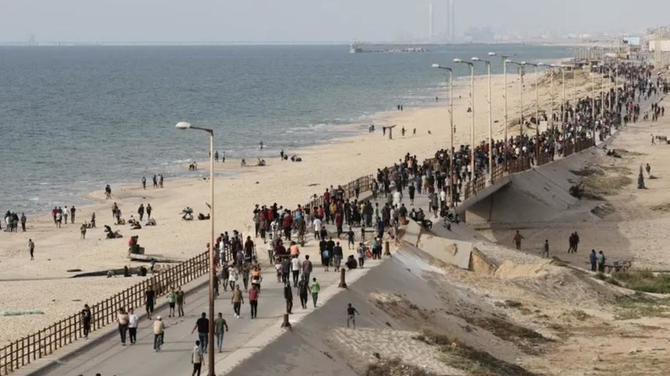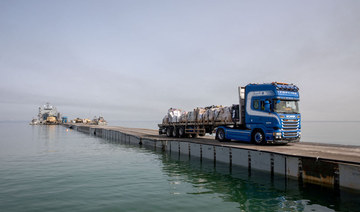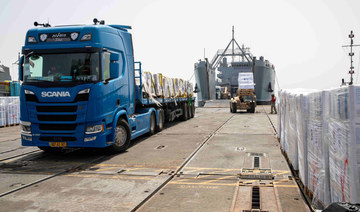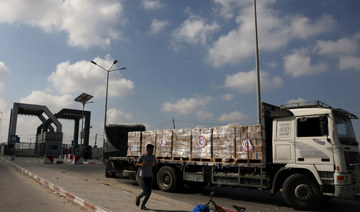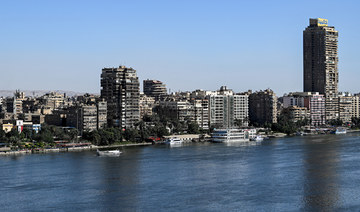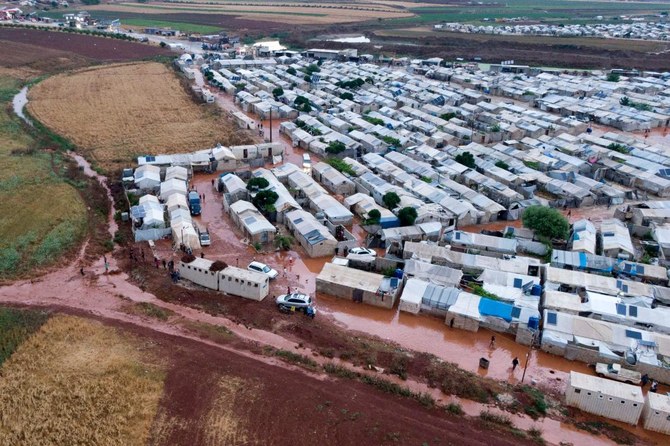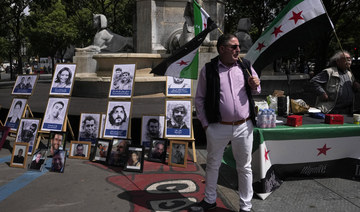DUBAI: Turkey made mistakes “from day one” with its involvement in the Arab Spring, the country’s former Foreign Minister Yasar Yakis said on Monday.
Discussing changes in Ankara’s policies on the second day of the fifth Abu Dhabi Strategic Debate, he spoke of decision-makers in the ruling party who believed they could “go back to the Ottoman times” and expand Turkey’s regional influence.
“Realities in the field showed that Turkey had limits, and it couldn’t achieve what it thought it could,” Yakis said on the panel “The Dilemma of Imagined Power: Turkey.”
He added: “Thanks to cooperation with Russia now, Turkey learnt in Syria that it had to adjust its policy to the reality in the field.”
Yakis addressed Ankara’s relationship with Riyadh, saying: “I don’t think Turkish power is capable of making changes within the royal hierarchy of Saudi Arabia… It may have tried in the past… but it isn’t strong enough to make an impact in Saudi society.”
He added: “There’s an appreciation between the Turkish people and the Saudi people, and (President Recep Tayyip) Erdogan’s role isn’t indefinite. He won’t rule infinitely in Turkey.”
Ankara’s regional policies have changed significantly in the last three decades, Yakis said.
In the 1990s Turkey had stronger relations with the West and neglected the Middle East, but in the new millennium it opened up to the latter, albeit to a limited extent, he added.
Dr. Omer Taspinar, a senior fellow at the Brookings Institution, said: “Turkey discovered after the so-called Arab Spring, especially in Syria, the limits of its power.”
He added: “There’s currently a mismatch between Turkey’s ambitions and its military, economic and diplomatic power.” 
Experts also addressed Iran’s role as a leading state sponsor of terrorism on the panel “End of Myth: Iran,” and the ongoing Qatar diplomatic crisis on the panel “End of Myth: Qatar.”
The role that Doha has played both regionally and internationally is unacceptable, said Dr. Ibrahim Al-Nahas, a member of the Saudi Shoura Council.
“Saudi Arabia has traditionally followed international law. We want peace. We want all countries to be stable,” he told Arab News.
“We think Qatar will continue its support for terrorist groups such as the Muslim Brotherhood. Saudi Arabia won’t tolerate that. Unless Qatar accepts our conditions, there will be no future for us.”
Doha’s actions have put it in “conflict regionally and worldwide,” Al-Nahas said. Fellow Gulf Cooperation Council (GCC) states view as “very grave” Qatar’s attempts “to trespass on the security system that the region has become accustomed to” and interfere in countries’ affairs internationally, he added, expressing skepticism that Doha will change course.
Dr. Mohsen Milani, executive director of the Center for Strategic and Diplomatic Studies at the University of South Florida, addressed Iran in the wake of the latest round of strict US sanctions.
Iran’s regional power is likely to decline, especially given the slide in its economic assets, he said.
“I believe Iran’s regional policies can’t be sustained because Iran is committing one big mistake: It’s becoming overstretched and overcommitted. The Iranian economy can’t sustain that,” he added.
“Iran is on the verge of overreaching. They’re involved in Syria, in Libya, in Afghanistan. It isn’t sustainable.”
The “only way” to reach a new deal in place of the flawed nuclear one that US President Donald Trump walked away from is to get countries such as Saudi Arabia, the UAE and their GCC allies involved in talks that would address much more than Iran’s nuclear activities and ballistic missile program, Milani said.
Dr. Sultan Al-Nuaimi, a faculty member at Abu Dhabi University, spoke of high-level corruption within the Iranian regime.
“Iran is subject to various sanctions… yet even Iranian officials say the problem doesn’t lie with the sanctions but with corruption and governance. Corruption has reached institutions that should be fighting corruption,” he said.
Experts also addressed Trump’s “deal of the century” to reach a permanent agreement between Israel and Palestine, details of which have yet to be revealed.
Amr Moussa, former secretary-general of the Arab League, predicted that it will be universally rejected. 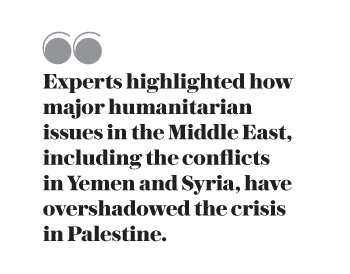
“The ‘deal of the century’ is up in the air and nobody knows what’s going on, but everyone is pessimistic… Whatever is coming can’t be sold as something promising,” he said.
“I don’t believe the Jordanians… the Egyptians… or the Palestinians will accept this deal. A deal has to include a certain balance, but as we see, there’s no balance,” he added.
“You can’t give 99 percent to one side and 1 percent to the other. We can’t sell something that’s unreasonable.”
Arab leaders need to be part of the conversation, Moussa said, calling for a roundtable that brings together international experts to draft a new “deal of the century” that takes into account the rights of all parties.
Experts highlighted how major humanitarian issues in the Middle East, including the conflicts in Yemen and Syria, as well as Iran’s sponsorship of terrorism, have overshadowed the crisis in Palestine.
Former US Ambassador Dennis Ross, a William Davidson Distinguished Fellow at the Washington Institute for Near East Policy, said: “I have no doubt that the Palestinian issue remains a fundamental issue. It can’t be wished away because there’s a preoccupation with everything else.”
But, he added, “half a million dead in Syria is a fundamental… strategic and human issue,” and Iran “is a major issue.”
Ross advised against rejecting Trump’s peace plan before it has fully materialized, saying his administration is “going to come with a plan… soon enough. We have to see what that will be. I think it’s a mistake to pre-judge it.”
Among the other speakers on Monday were Khaled Bahah, former Yemeni vice president and prime minister; Dr. Mahmoud Jibril, former prime minister of Libya; and Nabil Fahmy, former foreign minister of Egypt.
In the session “Arab World: Walking on Water,” they raised the issues of discontent among youths in the region, and a growing resistance to change that must be addressed. Jibril called for “the rebuilding of our societies and education.”
Experts addressed the importance of the Arab world finding its own solutions to its problems rather than relying on outside support.
Bahah said: “Today in the region… the lack of ability to change is leading to violence.”
He added: “If we as Arabs could solve our problems… it would provide no opportunity (for outsiders) to interfere.”









